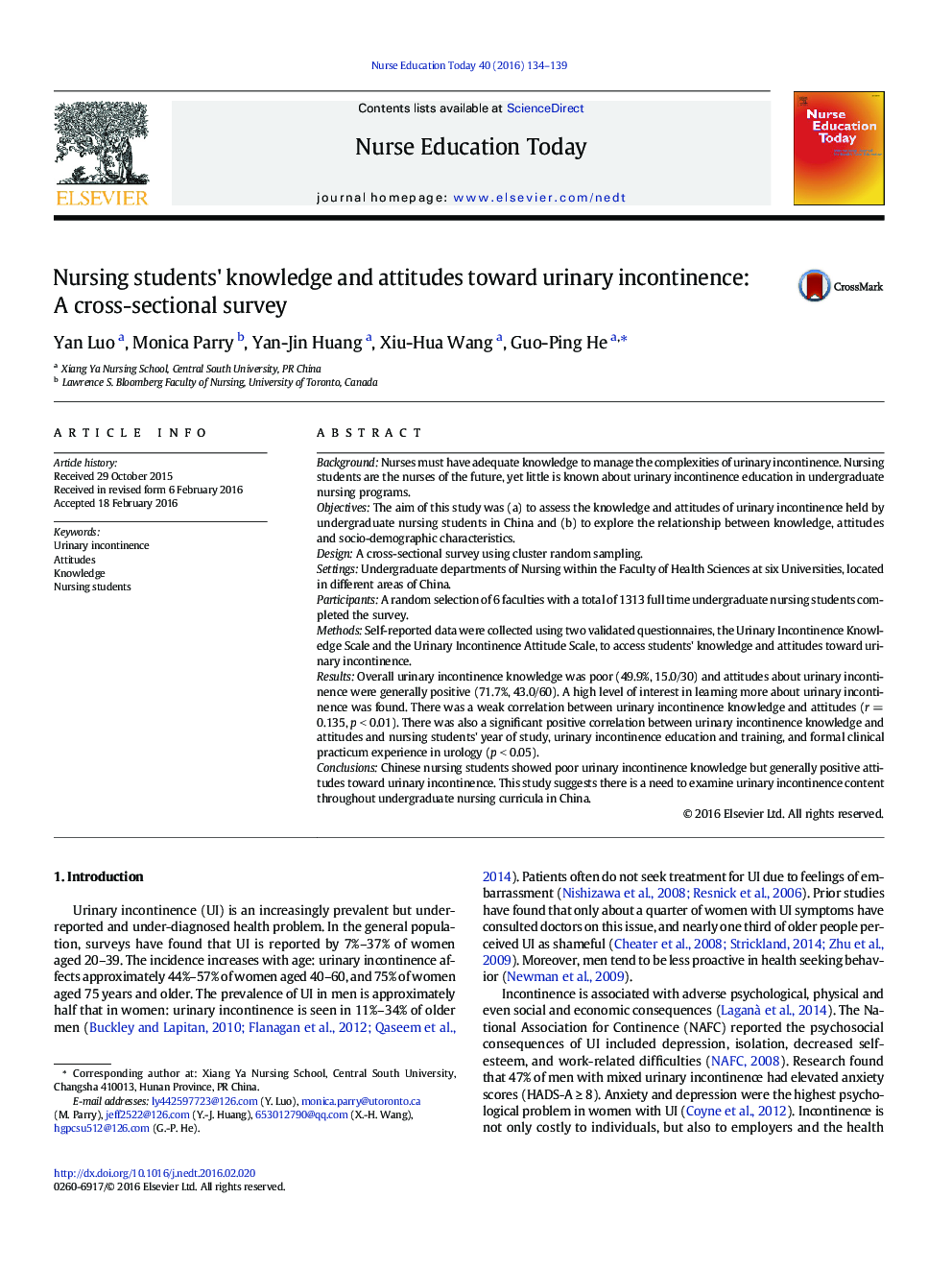| Article ID | Journal | Published Year | Pages | File Type |
|---|---|---|---|---|
| 367861 | Nurse Education Today | 2016 | 6 Pages |
•This study suggests urinary incontinence content may need to be enhanced in undergraduate nursing curricula in China.•Urinary incontinence education and practical experiences were positively related to incontinence knowledge and attitudes.•Enhanced knowledge was associated with better attitudes toward urinary incontinence.
BackgroundNurses must have adequate knowledge to manage the complexities of urinary incontinence. Nursing students are the nurses of the future, yet little is known about urinary incontinence education in undergraduate nursing programs.ObjectivesThe aim of this study was (a) to assess the knowledge and attitudes of urinary incontinence held by undergraduate nursing students in China and (b) to explore the relationship between knowledge, attitudes and socio-demographic characteristics.DesignA cross-sectional survey using cluster random sampling.SettingsUndergraduate departments of Nursing within the Faculty of Health Sciences at six Universities, located in different areas of China.ParticipantsA random selection of 6 faculties with a total of 1313 full time undergraduate nursing students completed the survey.MethodsSelf-reported data were collected using two validated questionnaires, the Urinary Incontinence Knowledge Scale and the Urinary Incontinence Attitude Scale, to access students' knowledge and attitudes toward urinary incontinence.ResultsOverall urinary incontinence knowledge was poor (49.9%, 15.0/30) and attitudes about urinary incontinence were generally positive (71.7%, 43.0/60). A high level of interest in learning more about urinary incontinence was found. There was a weak correlation between urinary incontinence knowledge and attitudes (r = 0.135, p < 0.01). There was also a significant positive correlation between urinary incontinence knowledge and attitudes and nursing students' year of study, urinary incontinence education and training, and formal clinical practicum experience in urology (p < 0.05).ConclusionsChinese nursing students showed poor urinary incontinence knowledge but generally positive attitudes toward urinary incontinence. This study suggests there is a need to examine urinary incontinence content throughout undergraduate nursing curricula in China.
